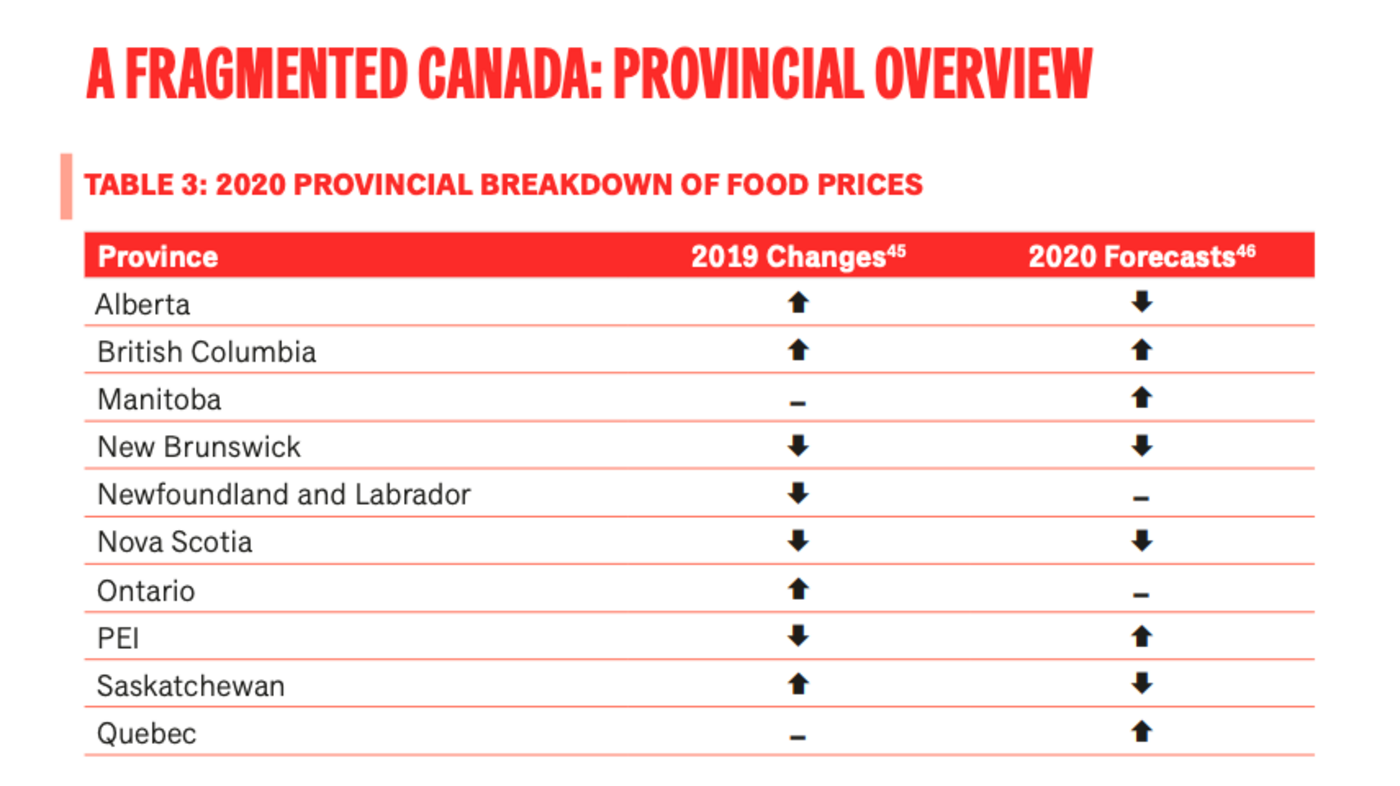
Food costs in Canada expected to go up almost $500 per household next year
The year 2020 is looking like it's going to be expensive, according to a new report by Dalhousie University and the University of Guelph.
The tenth annual Canada's Food Price Report was released yesterday, and the findings reveal that Canadians can expect to spend $487 more on food next year.
Canadian families will spend $487 more on groceries next year says Canada's Food Price Report 2020 released today. The report is an annual forecast by @uofg @ArrellFoodInst and @DalhousieU researchers@LangUofG @SimonSomogyiAFI
— University of Guelph News (@UofGuelphNews) December 4, 2019
https://t.co/rHTK6cQzcz pic.twitter.com/Dx4qTBTOdz
The shocking increase is due to rising meat, produce and seafood prices, according to the report. Meat prices are projected to have the largest increase of price at four to six per cent.
Extreme weather, food recalls and the tightening of the border between U.S. and Mexico are all contributing to skyrocketing produce prices, according to the report.
Overall, food prices are anticipated to go up by two to four per cent, resulting in an annual food expenditure of $12,667 for every Canadian household.
"When rates increase quickly, families can be left behind," said lead author and Dalhousie project lead Sylvain Charlebois. "Vegetables are a perfect example. Canada's new Food Guide is encouraging Canadians to eat more vegetables, but they're getting more expensive."
Provinces like British Columbia, Manitoba, Prince Edward Island, and Quebec are all projected to have increased changes in food prices, according to the report. While Alberta, Saskatchewan, New Brunswick and Nova Scotia, are expected to see below average inflation rates.
 The report calls climate change the elephant in the room for 2020, citing that Canadian food systems will be affected by changing weather patterns including droughts and forest fires, heavy precipitation, reduced freshwater access and rising sea levels.
The report calls climate change the elephant in the room for 2020, citing that Canadian food systems will be affected by changing weather patterns including droughts and forest fires, heavy precipitation, reduced freshwater access and rising sea levels.
"Canadian farmers will face challenges in the future dealing with unpredictable crop yields, heat-wave livestock threats, pasture availability and pest and disease outbreaks," reads the report.
The report also says that if managed properly, climate change could help Canada improve soil health by enhancing carbon sequestration processes and reducing emissions of greenhouse gases.
Canada’s Food Price Report also acknowledges major trends and changes over the past decade, which demonstrated the vulnerability of Canada’s food industry.
The report says the most notable and impactful moments in Canada’s food price history during include the beef price shock in 2015, the dairy proteins (diafiltered milk) loophole, the impact of US imports, and the bread price-fixing scheme which took place over 14 years from 2001 to 2015.
Hector Vasquez
Latest Videos
Join the conversation Load comments







